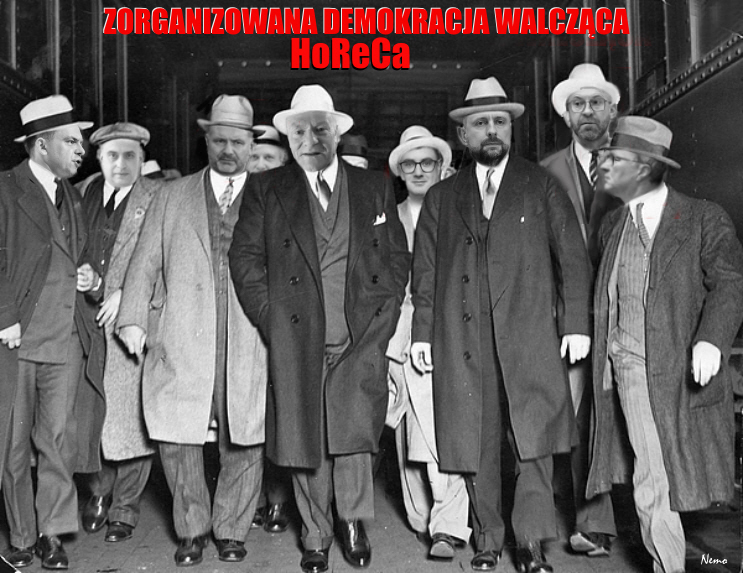The Polish Group of Obuwia Producers (PGPO) sent an open letter to Karol Nawrocki and Rafał Trzaskowski – candidates for the office of president of Poland – on the future of home footwear production.
The appeal is about more than just the industry's interest – it is simply a voice on fairness, transparency and consumers' right to an informed choice.
A consumer unaware is simply a consumer manipulated
The letter from the PGPO points out the absurd situation: on the Polish footwear marketplace there is no work to state the country of production. This means that shoes manufactured in Asia can be sold as ‘Polish’ only due to the fact that the ordering company is established in Poland. The consumer who sees the Polish address on the packaging is not aware that the product was not made in the country, but in a mill close Hanoi or in Canton.
There are 2 products on the shelf: the first – made by Polish craftsmen from certified materials, for 300 PLN. Second – imported in bulk, without designation of origin, for 200 PLN. The consumer has no chance of distinguishing which is which. It's cheaper. Polish companies lose orders, reduce production, close plants.
PGPO: We only want the right to fair information
The PGPO’s request does not apply to trade barriers or duties. The organization does not request peculiar reliefs or preferences. The only demand: the work to mark the country of footwear production – clearly, clearly and straight – on the packaging, label, online and stationary store.
As highlighted in the letter:
"We do not anticipate customs, barriers, protectionism. We only want 1 thing: honest information. Is it worth producing in Poland? Yeah. But only if it can be shown.”
Shoe manufacture in numbers
The situation of national producers is well illustrated by:
- In 2023, Poland produced ca. 27 million pairs of footwear – is simply a 12% decrease compared to 2021.
- Imports were above 100 million pairs – mainly from China, Vietnam and India.
- Poland exports approx. 40-45 million pairs annually, mainly to the EU, which brings more than EUR 1 billion revenue.
- Still, we are. net importerand the balance of trade continues to deteriorate.
Effects of deficiency of regulation: drama by local companies
The absence of a request to identify the country of production creates a marketplace fiction. Polish companies must compete with anonymous imports that care about labour costs, environmental standards and material quality. This. de facto unfair competition, but legal – due to the fact that the law is silent.
As a result: artisans lose their jobs, cities specified as Kalwaria Zebrzydowska, Nowy Targ or Grudziądz – erstwhile the hearts of Polish footwear – are fighting for endurance today, young people do not see the future in method competitions – due to the fact that there is no place to get practice.
Who's calling? PGPO Members
Behind the appeal are circumstantial companies, circumstantial people. Here are the silhouettes of any of them:
Wojas S.A. (New Market)
One of the largest and most recognizable Polish producers. The company produces in its own plant, employing hundreds of people. Exports to respective EU countries.
Bartek S.A. (Minsk Mazowieckie)
A maker of children's footwear, focusing on quality, wellness solutions and production in 100% in Poland. The company has its own laboratories and shoe investigating systems.
Cornecki (Jordanów)
Family company operating since the 1980s, producing children's and youth shoes. Known for its robustness and durability.
Lemigo (Grudziądz)
Specializes in lightweight rubber and foam footwear. Products are exported to more than 40 countries, but the full production process remains in Poland.
Niko (Kalwaria Zebrzydowska)
Traditional maker specialising in classical men's footwear. It focuses on performance quality and local production.
Markko — Conhpol (New Scales)
A maker of high-grade leather footwear that combines hand finishing with modern technology.
European context: Poland falls behind
In many EU countries there are rules requiring country of origin marking or strong recommendations in this regard. For example:
- Type markings are promoted in Italy and France Made in Italy as a warrant of quality and local origin.
- Germany applies strict standards on transparency of the supply chain.
- The EU plans to tighten the rules on environmental and ethical indications – but Poland has inactive not introduced the work to indicate the place of production.
That means that Polish producers operate under more hard conditions than European competitorseven though they frequently offer higher quality.
Arguments for a change of law
- Right to information: The consumer has the right to know what he buys and where the product comes from.
- Equal opportunities: Local producers should not be punished for producing in Poland.
- Increased confidence: Transparency builds client loyalty and supports liable shopping.
- Strengthening the local economy: Maintenance of jobs, taxes and know-how in the country.
It's not just industry. It's a civilization choice.
The PGPO addresses presidential candidates not to gain marketplace advantage, but to save the sense of production in Poland. It's a question of whether the country wants to be the place where it is produced or just the marketplace for mass imports.
As the signatories stress:
"Is it worth producing in Poland? Yeah. But only if it can be shown.”
The PGPO appeal is simply a test for the political class: whether it can defend the interests of the national economy, while maintaining free marketplace rules and ensuring consumer rights.










![A gdyby śmierci nie było? [o „Trzecim królestwie” Knausgårda]](https://krytykapolityczna.pl/wp-content/uploads/2025/07/Szablon-rozmiaru-obrazkow-na-strone-2.png)






